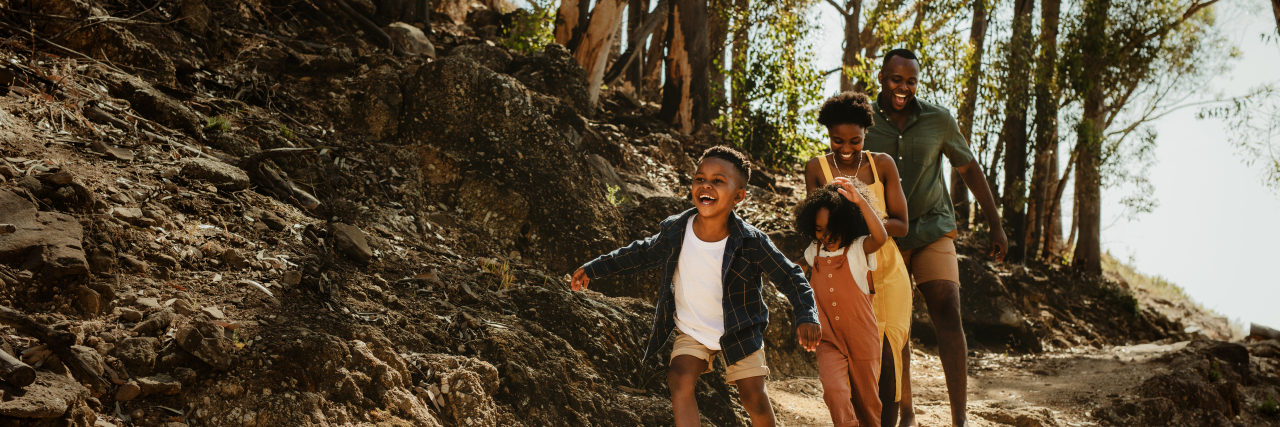For Parents of Kids on the Autism Spectrum, It Takes a Village
In his book, “Outliers,” Malcolm Gladwell describes a village of Italian expats in the U.S. where everyone lived ultra-long lives. Was there some secret to their longevity? What, researchers longed to know, was their secret sauce? Did they practice an aesthete form of yoga? Were they strict vegans? No. In fact, they all smoked like chimneys and ate plenty of meat. They were, however, a close-knit community where everyone supported each other. That was it.
Over the decades we as a society have become more self-sufficient. Our kids play on screens rather than on streets. Our doors are locked. Our lives — our real lives, not the sanitized versions we present on social media — are intensely private. We equate success with self-reliance, yet the more self-reliant we become, the more estranged we are from each other. Our success as a species has, ironically, been our detriment.
I have never been comfortable asking for help. In times of need, I fall into a suspect silence. Close friends may intuit that something is very wrong if they don’t hear from me in a while. I may phone my mother, but that’s the extent of my reaching out. The pandemic has made it abundantly clear that we are not destined to be rocks. Nor are we, in the words of the great Paul Simon, intended to be islands. Families of kids on the autism spectrum, in particular, cannot survive alone. We need each other. We need the support of teachers, principals, therapists, family and friends. I know this to be true, though I have long pretended otherwise.
Thirteen years ago, when my son was born, I set out on a journey, along the steepest learning curve, to this hitherto unknown place called Autism. My husband came. Eventually, we invited our parents and closest friends. Some doubted the label. Some criticized our parenting skills. No one truly understood our child or what we were experiencing in our day-to-day lives. Some of those we loved rejected us. Others we rejected. It was a painful process, all this separating and distilling. Some people we loved were open to learning and willing to accompany us on our journey. Others fell behind, never to be seen again. We missed them but realized it was for the best.
Gradually, almost imperceptibly, our world changed. We’re not in Kansas anymore, Dorothy. Going out became too unpredictable, too hard on account of my son’s sudden meltdowns, so we stopped. My family of three retreated to our island where everything was safe and comfortable. Through a parenting support group, I met other families like ours. I felt an immediate kinship with them. Bit by bit, I let myself open up to others. At first, we swapped information. I never would have known about certain activities and funding options otherwise. We laughed and cried as we shared anecdotes only we would understand. Without realizing it, I had entered into a secret society I had never applied to join. But there was a sense of belonging I hadn’t felt in years. These were my people. They understood everything. When we got together at each other’s houses, there was no judgment, no fear. Our children were not the same, but they were similar enough that we could recognize ourselves in each other. We could see when the other was stumbling and instinctively hold out our arms.
For a time, I ignored the arms and walked in the other direction. Being around my people felt too depressing — too much like a pity party. I couldn’t bear the weight of their struggles. Weren’t my own struggles heavy enough? Sometimes people hold up a mirror and you aren’t ready to look. You are too afraid of what you might see. Other times, the mirror is exactly what you need.
A couple of years ago, after much coaxing, a friend convinced me to attend a retreat for caregivers. It was overwhelming. A torrent of hugs and tissues. And stories, so many stories… Heartache and hope swelled inside a room not big enough to contain them. I sat there, absorbing it all until my head felt like it would explode. At one point, I couldn’t breathe. I raced outside and stumbled along a gravel path, alone. It was too much. I needed to get back to my island. I couldn’t take it all on. A migraine skewed my vision and left me nauseous. That day taught me an important lesson about community and boundaries.
Now I know that I need my village, but I also need to be able to escape sometimes. To retreat to my own four walls. We all need people who understand us and our unique circumstances. To find mine I had to step out of my comfort zone and attend events, virtual or in-person. I’m glad I did because you never know when you will need arms to catch you. Sometimes those arms will be your arms reaching out. Other times you will be the one falling.
Getty image by Jacob Lund.

